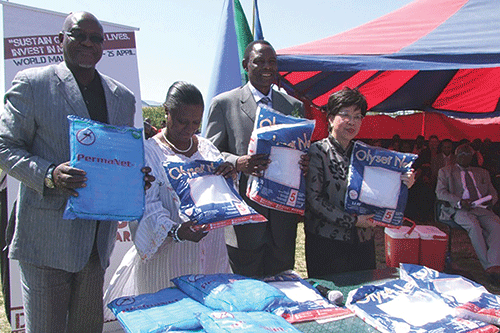OMUTHIYA – The Ministry of Health and Social Services’ director in the Oshikoto region, Joshua Nghipangelwa, is advocating for the use of traditional herbs as an extra measure to repel mosquitoes.
Nghipangelwa said in an interview with Nampa on Monday that mosquito nets and spraying campaigns involving coating house surfaces with insecticide primarily aim to
protect individuals during sleep.
“I encourage community members to rely on traditional herbs like Etselyakuku (tumbleweed) to repel mosquitoes while outdoors at night,” he said. The plant is traditionally used as an insecticide. The director also emphasised the importance of wearing long-sleeved clothes, and using mosquito-repellent lotion for added protection. Nghipangelwa thus urged community members to take responsibility for preventive measures, as he said they play a crucial role in mitigating transmission and combating malaria. “Zero malaria starts with you. Malaria prevention is not the sole responsibility of the ministry; it requires a multi-sectoral approach with active community involvement,” he added. The statement followed the handing-over of 11 000 mosquito nets to the Oshikoto health directorate by the Ministry of Health and Social Services’ National Vector-borne Diseases’ programme on Monday.
“We expect to start with distribution to hotspots and hard-to-reach areas on 29 January 2024,” said Nghipangelwa. He clarified that the distribution would not cover the entire population of the Oshikoto region, but would instead prioritise certain areas, starting with Okankolo, followed by the Guinas constituency, and concluding in the Tsumeb constituency. – Nampa



